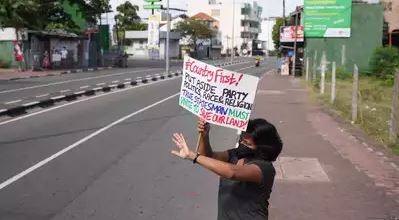Crisis-hit Following a rescue from the International Monetary Fund, Sri Lanka said on Tuesday that it will default on its entire foreign debt, valued at $51 billion (almost Rs 39,000 crore).
The amount of money a country owes to foreign lenders, whether they be commercial banks, governments, or international financial organisations, is referred to as the country’s foreign debt.
Throughout recent months, the island country has been burdened by mounting public debt. Sri Lankans are experiencing shortages of medications, milk powder, cooking gas, kerosene, and other necessities as a result of the country’s declining foreign currency reserves.
India and China have both offered assistance to the government of Pakistan.
Due to a scarcity of fuel to run power plants, authorities have enforced daily power outages of 13 hours.
Because of a scarcity of cooking gas, hundreds of bakeries around the nation have closed. In a number of state-run institutions, surgery has been discontinued.
School exams for Classes 9, 10 and 11 have also been postponed indefinitely by the government, which is unable to produce question papers due to a lack of sufficient supplies of ink.
Except for two members of the ruling Rajapaksa family, Sri Lanka’s entire cabinet resigned en masse on April 4, according to the country’s official news agencies. A new finance minister was appointed, but he, too, quit less than 24 hours after taking up his new position.

